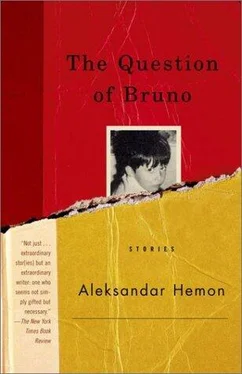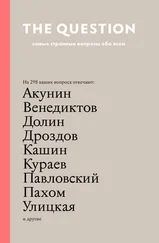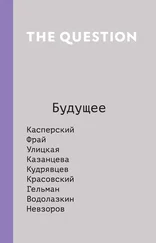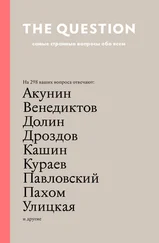He began hating Bill Clinton — spitting at the TV screen every time he was on — because he was able to produce a twinkle in his eye whenever he appeared before cameras.
He attempted to earn his crust of bread as a bilingual water-filter and health-inducing-cookware salesmen, which folded up after his supervisor-to-be — an ex-football player in a double-breasted suit and a goatee framing his fat, optimistic snout — told him that if he wasn’t “gonna smile more and with more heart,” there was “no buck in this business” for him.
He stopped desiring women, and began masturbating detachedly, not even fantasizing. Afterward he would spend hours in the shower, wanting to wash the filth off his skin, until he thought of water shortages in Sarajevo.
He began hating himself, because he was selfish, whatever he happened to be doing, just by being alive.
He stank all the time — even the inside of his nostrils stank — and people went around him on the street, and avoided sitting by him on the EL.
He answered a job ad, and listened to a voice saying, before he could say a thing: “Do you wanna make money?” “Well, it depends …” he responded, and the voice said: “This ain’t no job for sissies,” and hung up.
He began fantasizing about punching rock stars in their big fucking mouths, because they complained all the fucking time about being fucking unhappy.
We wish he had approached us then, we would have helped him.
He realized that his previous life was completely beyond anyone’s reach and that he could entirely reinvent it, create a legend, like a spy.
He had dreams involving his parents: his father would sacrifice a rook in a chess game, and Pronek would beg him not to do so, for it would lead to a checkmate; his mother would take books off the shelves, rip the pages with pictures and then burn them in an iron stove, because she was cold all the time.
He interviewed for a job as a bike messenger, which was going marvelously, until he was informed that he needed his own bike and helmet.
He realized that he was invisible, and he desired being watched — he imagined a camera that would always follow him everywhere and record all the inconsequential and infinitesimal actions of his life.
He briefly worked the graveyard shift at White Castle, stealing the small burgers and taking them home to eat them cold, his pockets reeking of rotting processed meat and dissolving minced onion.
In the fall of 1993, Andrea’s father came, struggling his way through the Polish debris, and solemnly informed Pronek that he would have to move out, for the apartment was successfully sold to a distinguished realtor, and they had to finish it as soon as possible — the Poles were to work day and night. Pronek saw the quartet of Poles shrugging their shoulders benevolently behind Andrea’s father’s back, and, numb with despair, announced that he was presently jobless, albeit looking for work. Whereupon Andrea’s father offered to help him find employment in his wife’s house-cleaning agency, known as “Home Clean Home.”
Oh, what a lucky break for our immigrant.
Pronek took part in a delightful interview with Andrea’s mother. “I know you’re a hard worker,” she said. “It is people like you who built this great country for us.” She patted him on the back with the tips of her fingers and sent him off to the agency supervisor, a man labeled Stephen Rhee by the name tag on his heart. He was an ex-Marine, he grimly informed Pronek, and there was no screwing around with him. He had a crew cut, an immaculately ironed short-sleeve shirt, a bushy mole on his cheek, which looked like a tiny bullet wound from afar, and a tattooed eagle holding a rifle on his forearm. He tended to have a toothpick in his mouth at all times, and when Pronek told him that he used to be a writer, Rhee informed him that Jack Kerouac was the greatest writer of all time. “Dust is our mortal enemy, vacuum cleaners are our M16,” he announced to Pronek, while showing him his locker, reeking of someone else’s sweat. Before sending the crews out in the morning, he would install his fists on his hips and give a speech:
“I got four words for you: cleanliness, loyalty, shiny surfaces, privacy. We have to leave the house clean, ’cause this is a cleaning service, darn it. We work like a team, okay — if this guy leaves the bathroom filthy, then the work of that gal in the kitchen is all screwed up. Whatever is supposed to be shiny in that house must make you freakin’ blind. And — get this into your empty heads — we are entering the temples of other people’s lives. Don’t you even begin to think about touching anything that does not need to be cleaned. There must be no traces of your being there, other than absolute cleanliness.”
Yep, they cleaned in Hinsdale, Orland Park, Deerfield, Highland Park, Glencoe, Schaumburg, Oak Park, Wilmette, Winnetka, Forest Park, Lake Forest, Park Forest, Kildeer, Lake Bluff, all over Chicagoland.
Once they even went for a big job in Normal.
Being a novice, Pronek became a bathroom cleaner, “the shit boy.” He would enter the bathroom and scan it first. He would look behind a shower curtain: the wall tiles smudged with soap and skin-froth; curled hair at the bottom of the bathtub, like earthworms who didn’t make it to the soft ground; the shower looming over the tub like a buzzard head; caged shampoos, hanging on the shower’s thin neck. The toilet gaping, the seat lifted and the bowl specked with urine droplets; pubic hairs stuck to its side, as if climbing up; a crumpled and soiled piece of toilet paper behind. The mirror dotted with toothpaste foam, sprinkled from someone’s mouth last night; toothpaste tubes writhing below the mirror, with a thumbprint in the middle; liquid-soap bottles, like limbless flamingoes, with the nozzles sticking out; stolid bottles of beauty: moisturizers, replenishing creams, aftershaves, conditioners.
Upon inspection, Pronek would clean, slowly and mercilessly effacing all remnants and traces of bodies. He grew to like doing it, because he would stop thinking about himself and everyone else, focusing on hairs and stains, enjoying their steady, inevitable disappearing. The whole world would be reduced to a pimple-pus speck on the mirror, which he would swiftly wipe off. Everything in the bathroom would attain mind-absorbing magnitude, and he would become smaller and smaller, until he would completely abandon all thoughts of himself and everything outside that bathroom and become a transcendental cleaning force. Having finished cleaning, he would feel purified, as if his self changed profoundly while being away from him.
In that manner, he became a true professional. His wage rose from $6 per hour to $6.50 per hour, and Rhee allowed him to go occasionally on “solo missions”—cleaning Lincoln Park or Gold Coast condos alone.
Oh boy, did he like that: entering the apartment and the owner’s scent — perfume, shower gel, shampoo, deodorant — still lingering; furniture summoned around the TV, with a couple of proud dressers backed against the wall; maps of the world, ochre (which meant old), with dragons dipping in the corners; Ansel Adams’s photos of vapid gray desert valleys; small colorful carpets stretching on the floors like lazy, content cats; a tall CD rack, the Sears Tower of the condo; a staunch bookshelf with books standing straight like soldiers at attention: Independence Day; Seven Spiritual Laws of Growth; What’s Inside — A User’s Guide to the Soul; The Client; The Heart of Darkness; Eating in Tuscany; Investing Today; Mind for Dummies; Theodore Roosevelt: A Life; The Alienist , etc.; flower pots hanging from the ceiling like miniature gardens of Babylon; an array of family pictures on the piano gazing slightly upward, like afternoon sunflowers; a bowl full of trinkets: pennies, marbles, matchboxes, business cards, condoms, paper clips; a wine rack with black bottles, like a hearse; a sign on the wall saying “No Parking — Tow Zone”; a softball trophy, with a golden figure on a tiny pedestal throwing a golden marble (“Grace Cup ‘92”); the computer and its black screen closely monitoring his every move.
Читать дальше












